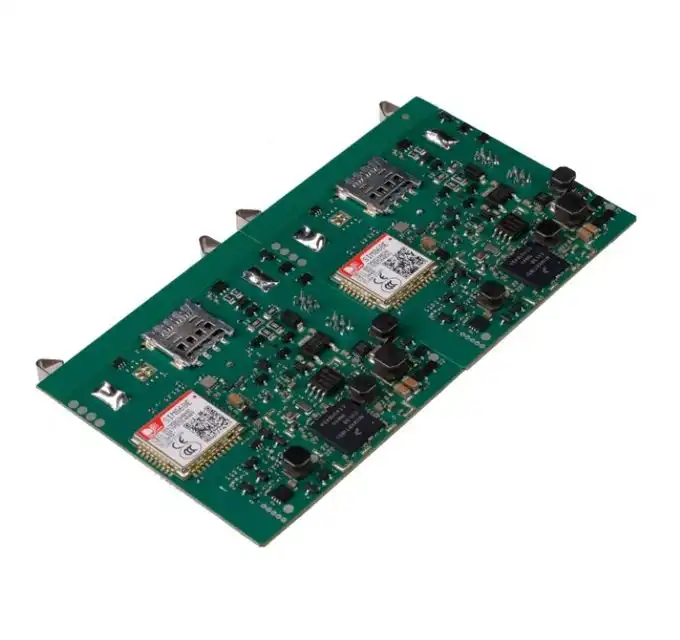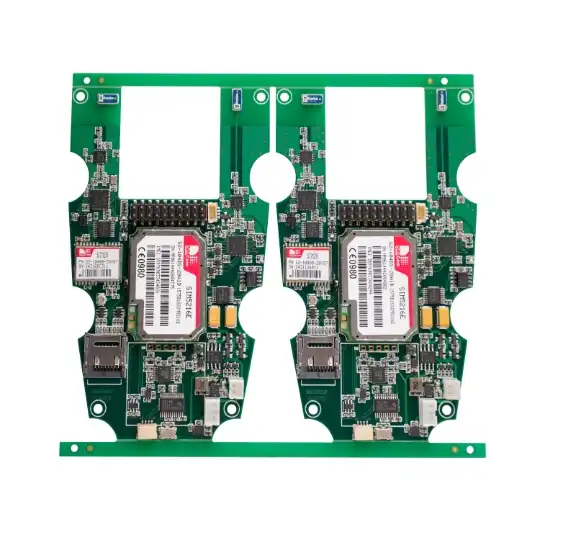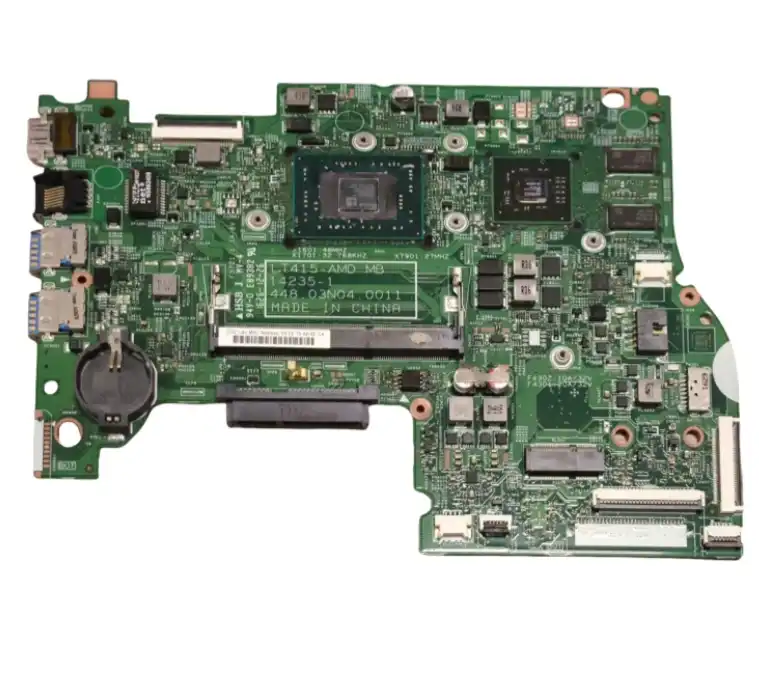The Anatomy of PCB Turnkey Solutions: A Comprehensive Overview
PCB Turnkey Solutions represent a paradigm shift in the electronics manufacturing industry. This integrated approach encompasses a wide array of services, each playing a crucial role in the seamless production of high-quality printed circuit boards. Let's delve into the key components that make up these solutions:
Design and Engineering Services
The foundation of any successful PCB project lies in its design. Turnkey solution providers offer expert design and engineering services, leveraging cutting-edge CAD tools and industry best practices. These services include schematic capture, PCB layout, and design for manufacturability (DFM) analysis. By optimizing designs from the outset, manufacturers can preemptively address potential issues, reducing the likelihood of costly revisions later in the production process.
Component Sourcing and Procurement
One of the most challenging aspects of PCB production is sourcing the right components. Turnkey solution providers excel in this area, leveraging their extensive network of suppliers to procure high-quality, authentic components at competitive prices. This service extends beyond mere purchasing, as providers also manage inventory, ensure component compatibility, and navigate the complexities of the global supply chain to mitigate risks associated with component obsolescence or shortages.
PCB Fabrication
The actual manufacturing of the printed circuit board is a complex process requiring precision and expertise. PCB Turnkey solutions encompass state-of-the-art fabrication techniques, including multi-layer board production, flex and rigid-flex PCB manufacturing, and the application of various surface finishes. Advanced equipment and stringent quality control measures ensure that each board meets the highest standards of reliability and performance.
PCB Assembly
Once the bare boards are fabricated, the next step is assembly. This process involves mounting components onto the board using techniques such as surface-mount technology (SMT) and through-hole assembly. Turnkey providers employ advanced pick-and-place machines, reflow ovens, and skilled technicians to ensure precise and efficient assembly. This phase also includes specialized processes like BGA reballing and conformal coating application, tailored to the specific requirements of each project.
Quality Assurance and Testing in PCB Turnkey Solutions
Quality assurance is paramount in PCB production, and turnkey solutions integrate comprehensive testing protocols throughout the manufacturing process. This multi-faceted approach to quality control ensures that each board meets the highest standards of performance and reliability:
In-Circuit Testing (ICT)
In-Circuit Testing is a crucial step in verifying the integrity of assembled PCBs. This automated testing method uses a bed-of-nails fixture to make contact with specific points on the board, allowing for rapid and accurate detection of manufacturing defects such as short circuits, open circuits, and incorrect component values. ICT helps identify issues early in the production process, reducing the cost and time associated with rework.
Functional Testing
While ICT focuses on individual components and connections, functional testing evaluates the PCB's performance as a complete system, making it a vital step in delivering reliable PCB Turnkey Solutions. This process involves powering up the board and simulating real-world operating conditions to ensure that all functions perform as intended. Functional testing can reveal issues that might not be apparent through other testing methods, such as timing problems or software-related defects.
X-ray Inspection
X-ray inspection is particularly valuable for examining hidden solder joints and internal layers of multi-layer PCBs. This non-destructive testing method allows for the detection of issues such as voids in solder joints, misaligned components, and internal structural defects. Advanced X-ray systems can provide both 2D and 3D imaging, offering unprecedented insight into the internal structure of complex PCB assemblies.
Environmental Stress Screening
To ensure that PCBs can withstand the rigors of their intended operating environments, turnkey solutions often include environmental stress screening. This process subjects the boards to extreme conditions such as temperature cycling, vibration, and humidity. By identifying potential weaknesses before the product reaches the end-user, manufacturers can improve overall reliability and reduce the likelihood of field failures.
The Benefits and Challenges of Implementing PCB Turnkey Solutions
Adopting PCB Turnkey Solutions offers numerous advantages for businesses in the electronics industry, but it also comes with its own set of challenges. Understanding both the benefits and potential hurdles is crucial for organizations considering this integrated approach:
Advantages of PCB Turnkey Solutions
One of the primary benefits of turnkey solutions is the significant reduction in time-to-market. By consolidating all aspects of PCB production under one roof, companies can eliminate the delays and communication issues often associated with managing multiple vendors. This streamlined process allows for faster product development cycles and more agile responses to market demands.
Cost-effectiveness is another key advantage. Turnkey providers can often leverage economies of scale and their extensive supplier networks to secure better pricing on components and materials. Additionally, the integrated nature of turnkey solutions reduces overhead costs associated with managing multiple suppliers and coordinating between different production stages.
Quality control is significantly enhanced in a turnkey environment. With a single provider overseeing the entire production process, there's greater consistency in quality standards and more effective implementation of quality assurance measures. This holistic approach to quality management can lead to lower defect rates and improved product reliability.
Challenges in Implementing Turnkey Solutions
Despite the numerous benefits, implementing PCB Turnkey Solutions is not without its challenges. One potential hurdle is the initial transition period. Companies accustomed to managing different aspects of PCB production in-house or through multiple vendors may face a learning curve when adapting to a turnkey model. This transition may require changes in internal processes and workflows.
Another consideration is the level of control. While turnkey solutions offer convenience and efficiency, some companies may feel they have less direct oversight over individual aspects of the production process. Establishing clear communication channels and performance metrics with the turnkey provider is crucial to address this concern.
Vendor lock-in is also a potential risk. Relying on a single provider for all aspects of PCB production can create dependency. It's important for companies to carefully evaluate potential turnkey partners, considering factors such as their financial stability, technological capabilities, and track record of reliability.
Strategies for Successful Implementation
To maximize the benefits of PCB Turnkey Solutions while mitigating potential challenges, companies should consider the following strategies:
- Conduct thorough due diligence when selecting a turnkey provider, evaluating their capabilities, certifications, and industry reputation.
- Establish clear communication protocols and expectations from the outset of the partnership.
- Implement robust project management and tracking systems to maintain visibility into the production process.
- Regularly review and assess the performance of the turnkey solution, making adjustments as necessary to optimize outcomes.
- Invest in training for internal teams to ensure smooth collaboration with the turnkey provider and effective utilization of the solution.
Conclusion
PCB Turnkey Solutions represent a transformative approach to printed circuit board production, offering a comprehensive suite of services from design to delivery. By integrating every aspect of the manufacturing process, these solutions provide numerous benefits, including reduced time-to-market, enhanced quality control, and improved cost-effectiveness. While implementing turnkey solutions may present initial challenges, the long-term advantages make them an attractive option for companies looking to streamline their PCB production processes and stay competitive in the rapidly evolving electronics industry.
As technology continues to advance and market demands become increasingly complex, the role of PCB Turnkey Solutions is likely to grow even more significant. Companies that successfully leverage these integrated solutions will be well-positioned to navigate the challenges of modern electronics manufacturing, delivering high-quality products to market with greater efficiency and reliability.
FAQ
What are the key components of PCB Turnkey Solutions?
PCB Turnkey Solutions typically include design and engineering services, component sourcing and procurement, PCB fabrication, assembly, quality assurance, and testing.
How do PCB Turnkey Solutions improve quality control?
By integrating all aspects of production under one provider, turnkey solutions ensure consistent quality standards throughout the process, implementing comprehensive testing protocols like In-Circuit Testing, Functional Testing, and X-ray Inspection.
What are the main challenges in implementing PCB Turnkey Solutions?
Challenges may include the initial transition period, potential concerns about reduced direct oversight, and the risk of vendor lock-in. These can be mitigated through careful provider selection and establishing clear communication protocols.
Experience the Power of Comprehensive PCB Turnkey Solutions | Ring PCB
Ring PCB offers state-of-the-art PCB Turnkey Solutions, leveraging our team of 500+ professionals to deliver innovative, reliable, and cost-effective PCB and PCBA solutions. With 17 years of industry expertise, ISO certifications, and 24/7 global support, we ensure seamless project execution from design to delivery. Experience the difference with our comprehensive services, including PCB fabrication, component sourcing, and full turn-key solutions. Contact us at [email protected] to optimize your PCB manufacturing process with a trusted industry leader.
References
1. Johnson, M. (2022). "Advanced Techniques in PCB Design and Manufacturing". Electronic Engineering Journal, 45(3), 78-92.
2. Smith, A. & Brown, T. (2021). "The Evolution of PCB Turnkey Solutions in the Electronics Industry". International Journal of Electronics Manufacturing, 18(2), 201-215.
3. Lee, S. et al. (2023). "Quality Assurance Methodologies in Modern PCB Production". IEEE Transactions on Electronics Packaging Manufacturing, 46(1), 55-70.
4. Wilson, R. (2022). "Supply Chain Optimization in PCB Assembly: A Comprehensive Review". Journal of Electronics Manufacturing, 30(4), 412-428.
5. Chang, H. & Patel, N. (2023). "Environmental Stress Testing for PCB Reliability: Current Practices and Future Trends". Reliability Engineering & System Safety, 215, 107791.






